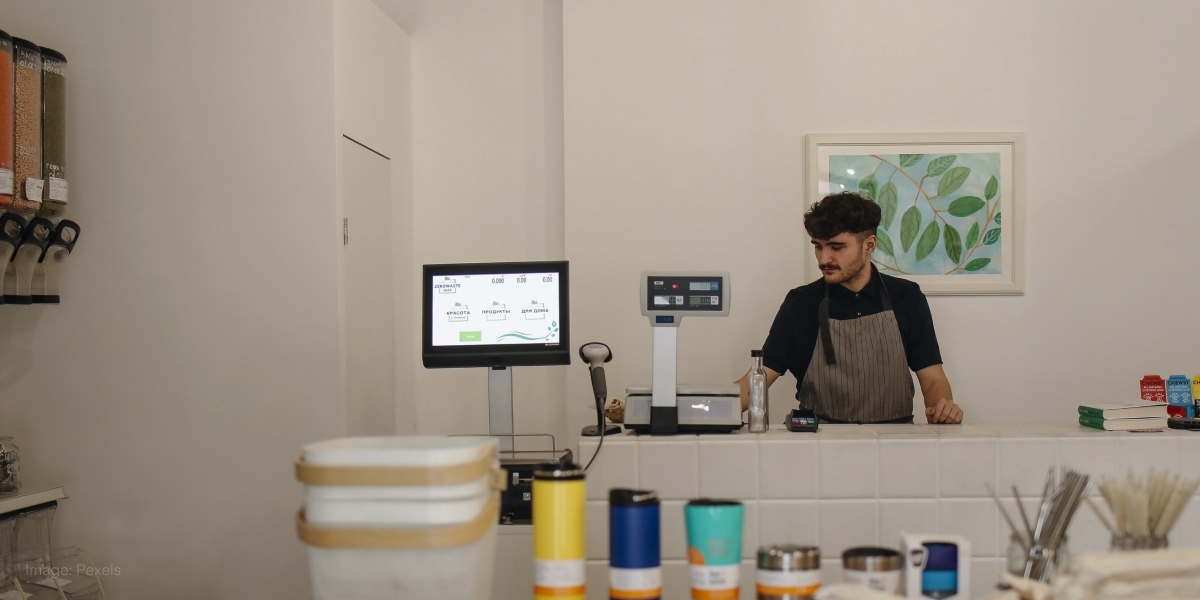
Under the Spotlight AUS: Tyro Payments (TYR)
Efficient payment processes are crucial for the success and growth of many businesses. Focus on the area has helped Tyro make its mark on Australia’s banking industry. But there are concerns about where its future lies. Let’s put it Under the Spotlight.
.jpg&w=3840&q=100)
There’s a longstanding four pillars policy in Australia’s banking sector that keeps the big four apart. While not formal regulation, it’s generally considered that a merger between the likes of CBA ($CBA), Westpac ($WBC), ANZ ($ANZ) and NAB ($NAB) would reduce competition and lead to a disruption of the nation’s relatively stable financial system. Others argue this stance has only entrenched their dominance and made it harder for new entrants to establish themselves in the financial sector.
Many have tried to carve out their own paths rather than directly challenge the major banks on all fronts. Macquarie ($MQG) has built on strengths in private infrastructure financing to become a global player, as well as establishing a large presence with its local services in areas like mortgages. However, few have replicated the successes of ‘The Millionaires’ Factory’ and the Reserve Bank of Australia has put out calls for greater competition in the industry over the years.
Entrepreneurs Paul Wood, Peter Haig and Andrew Rothwell rapidly responded to one of these calls, in this case about payments. In 2003, they founded a small provider known as MoneySwitch Ltd. This became the first technology firm in Australia to gain a specialist credit card institution licence in 2005. Two years later, they’d launched a cloud-based electronic funds transfer at point of sale (EFTPOS) solution and became the first new entrant to Australia’s EFTPOS business since 1996.

Processing orders
The business soon rebranded into Tyro Payments ($TYR) and quickly made a name for itself. Management implemented a strategy focused on partnerships with firms and franchisees that would benefit from integrated payment services. They targeted industries that require specific products, in particular the healthcare, hospitality and retail sectors. Tyro was one of the earliest to enable people to claim Medicare and other health insurance rebates through EFTPOS setups.
In 2016, Tyro moved on from its credit card licence and became the first domestic player to receive a full Australian banking licence in over a decade. It could now operate as an Authorised Deposit-taking Institution (ADI), which allowed it to bypass other banks and gain control over its transaction data. It also enabled them to launch new products, such as bank accounts and loans for small to medium-sized enterprises (SMEs).
Tyro searched for technically-driven solutions, trying to build efficient and cost-effective options. They also sought to increase choices for clients, being the first Australian bank to integrate Xero ($XRO) Payroll for businesses and adding a way to accept Alipay transactions. The firm’s growth in client numbers helped it become the fifth largest EFTPOS provider of all ADIs, behind only the big four. The business listed on the ASX in December 2019 and was the year’s largest IPO by market cap.

Premiums paid
Tyro has faced several challenges as a public company, including increased competition from large internationals like Block ($SQ2), whose Square payment system is also targeting SMEs. While loans and bank accounts offer new revenue streams, Tyro remains reliant on payments for income. The firm’s main source of funds comes from collecting a portion of the revenues going through any of its payment terminals. Growth depends on increasing the number of merchants using their terminals and the value of transactions going through them.
Tyro’s share of total card payments in Australia is estimated to have risen from 1.5% in calendar year 2015 to 5.4% in 2022. Their strength in payments is clear, but its banking activities are still limited and provided only 4.4% to gross profits in the first half of FY2023. There’s significant work ahead to reach the 20% targeted contribution to profits by FY2027. With fewer than 10% of its merchants currently having bank accounts with Tyro, the company has a large potential customer base to go after.
However, overall deposit amounts have been declining since FY2021 and there’s likely to be pressure to grow the average balance of the bank accounts. The short-term lending space in which Tyro now operates tends to provide higher margins, but is considered as a relatively risky venture, especially as SMEs have fewer resources to cushion against economic downturns. It’s still a small part of their operations, so overall risks are limited for Tyro in this respect.

Transaction declined
In January 2021, an estimated 19% of Tyro’s terminals suffered an outage and left many SMEs without methods to receive payments from customers for multiple days. The share price fell further with allegations the problem was more widespread than Tyro claimed. The company struggled to recover from this point and even an achievement like becoming the exclusive merchant-acquiring partner of Bendigo Bank ($BEN) did not convince the share market to turn its value around.
The unexpected departure of CEO Robbie Cooke in early 2022 did not impress investors either. However, in the meantime Tyro has actually become a profitable firm and saw positive free cash flows in the first half of FY2023, a situation that often remains elusive for many fintechs. Rather, there are other events that have affected its stock market performance, mainly relating to uncertainty about its future.
While Tyro has grown into a large business, it’s in a different position to the big four banks and is still a target for takeovers. The company first received a non-binding offer from private equity firm Potentia and other co-investors in September last year. Negotiations continued until May 2023, when a second offer was declined as management said Potentia undervalued the business. Being a subject of acquisition shows that some players view Tyro as a valuable asset, but it’s not clear if there are any major transactions ahead.
This does not constitute financial advice nor a recommendation to invest in the securities listed. The information presented is intended to be of a factual nature only. Past performance is not a reliable indicator of future performance. As always, do your own research and consider seeking financial, legal and taxation advice before investing.

Megan is a markets analyst at Stake, with 7 years of experience in the world of investing and a Master’s degree in Business and Economics from The University of Sydney Business School. Megan has extensive knowledge of the UK markets, working as an analyst at ARCH Emerging Markets - a UK investment advisory platform focused on private equity. Previously she also worked as an analyst at Australian robo advisor Stockspot, where she researched ASX listed equities and helped construct the company's portfolios.
.jpg&w=3840&q=100)
